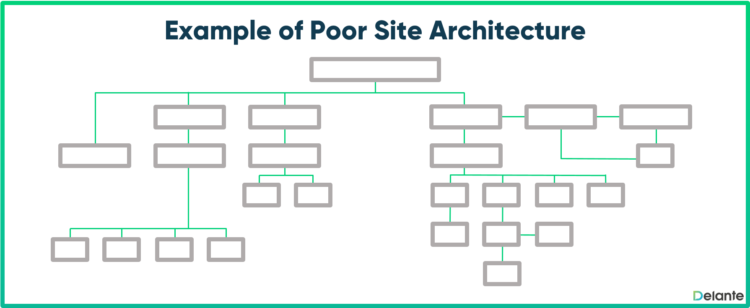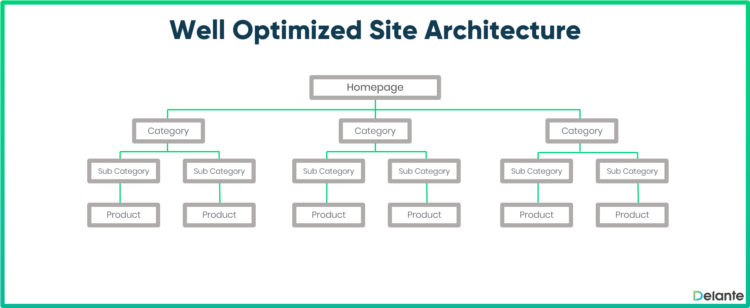5 Mistakes E-Commerce Owners Do That Ruin Their SEO

E-commerce SEO is an extensive method and it plays a vital role in your store’s online visibility & sales. Ckeck now what mistakes you should avoid to make the best out of your SEO strategy and sell more online.
What is E-commerce SEO?
Ecommerce SEO is the practice of optimizing your online store or website so your web pages can gain more visibility from your ideal customers in search, drive more targeted traffic, and increase conversion.
In other words, SEO for e-commerce can be an extensive method and it plays a vital role for your store’s online visibility and sales—it should be strategically implemented if you want your e-commerce business to scale.
Today, we will share 5 of the most common mistakes e-commerce owners do that ruin their search engine optimization, and how you can correct these mistakes if you’re unknowingly doing them on your website.
So, here we go.
Here are 5 Mistakes E-commerce Owners Do That Ruin Their SEO
- Using Less Ideal Keywords on Category Pages
- Having a Poor Site Architecture
- Using Incorrect URL Structure
- Neglecting Site Speed
- Not Optimizing for Mobile Devices
Is SEO Important for E-commerce?
A huge YES! If you’re not playing your SEO game well, don’t expect to rank on top of the first pages of the search engines such as Google, Bing, Yahoo!, and other search browsers.
Remember, whoever appears on the first pages of search results, gets more sales.
Search Engine Optimization, as previously mentioned, plays a very important role in your store’s online presence (especially in search) and conversion.
If you want your website to become the most trusted and go-to online store in your market, you must have a strategic plan and implementation for your E-commerce SEO.
Knowing these 5 mistakes e-commerce owners do that ruin their SEO is a start.
Now, let’s break them down one by one.
Mistake: Using Less Ideal Keywords on Category Pages
As you may already know, e-commerce SEO begins with keyword research… and listing the most ideal target keywords does a great deal for your e-commerce website.
Basically, there are 2 types of keywords that you need to tap on:
- Informational Keywords
- Product-focused Keywords
Informational keywords (e.g. how to use grapeseed oil) are terms that your target customers are typing into their search engines to learn helpful “how-to” content.
On the other hand, product-focused keywords (e.g. organic grapeseed oil) will dominate your website.
You can find these keywords using online keyword research tools such as Google Keyword Planner and Keywords Everywhere. Or you can take advantage of the auto-suggested search results in Google and Amazon.
Now, we’ve noticed that most e-commerce owners use less ideal or random keywords in their category pages—we see this as a HUGE mistake.
Yes, category pages may not drive sales as well as product pages but these pages can still convert. So, spend some time finding the most ideal keywords for your store’s category pages.
You can best start by looking at the categories your competitors already use.
An ideal keyword usually has high average monthly search per month and the competition sits at medium or high.
You can also spy on your competitors’ keywords—if you see some terms that they are paying for, that’s a good indication that there’s some conversion going on with such keywords.
Mistake: Having a Poor Site Architecture
Website architecture for e-commerce is extremely important because your online store tends to have more web pages than an average local shop or blog.
A typical e-commerce website has heaps of web pages. So, a well laid out website architecture is critical for the ease of use or navigation when your customers visit your site… and for the search engines to easily find and index all of your web pages.
Now, remember these two rules when setting up your e-commerce website architecture:
- Keep things simple
- Keep every web page not more than 3 clicks away from your homepage
This is an example of a poorly structured website:
And this is how a well-structured e-commerce website looks like:
Always remember that users love a simple and easy-to-browse website so they can find the products they want in no time. Plus, a well-organized website calls for faster and more effective indexing from search engines.
Mistake: Using Incorrect URL Structure
It’s surprising how we often see e-commerce web pages with overly generic URL structures—even to the point that it is unacceptable in search engine optimization.
For example www.myonlineshop.com/product/gso123654
Often, websites generate automatic URL structures that do more harm than good in your SEO. So, it is very important to customize your URL into something that makes sense—a shorter structure that contains the focus or target keyword (the term that your ideal customers are typing in the search engines).
For example www.myonlineshop.com/product/organic-grapeseed-oil
This is how you get more traffic toward your web pages, especially product pages, because a more specific and keyword-focused URL structure will come into search easily.
Mistake: Neglecting Site Speed
Load speed is the factor that can either make or break your e-commerce scale. If your web page loads more than 2 seconds, a typical visitor will abandon it and look to buy somewhere else.
On the other hand, most online shoppers perceive fast-loading websites as a trustworthy and professional business.
In fact, Amazon made multiple tests which concluded that if their website loads even just one second slower, they would lose $1.6 Billion each year. You see, this is how important your site speed is.
Mistake: Not Optimizing for Mobile Devices
In this modern time, online shoppers are no longer limited to their laptop and desktop computers. In fact, 80% of purchases happen through mobile phones and tablets.
Also, you’ll find that most of your customers prefer to shop using a mobile phone, they would look up product reviews and options on their phones, rather than coming to your actual store (if you have any).
Therefore, you need to make sure that each of your web pages is mobile-responsive—images, videos, texts, and call-to-action buttons.
SEO for E-commerce
Search Engine Optimization can be a pretty daunting and extensive task, it is never a one-man job… and if you’re looking to scale your business, getting an ecommerce SEO services subscription is a good investment to ensure that you’re always ahead of every competitor when it comes to search engine results.
You can start with having an ecommerce SEO audit to understand what needs to be done on your website—to improve your online search visibility, click-through rates, and conversion.
Lastly, make sure to consult effective e-commerce SEO specialists.





